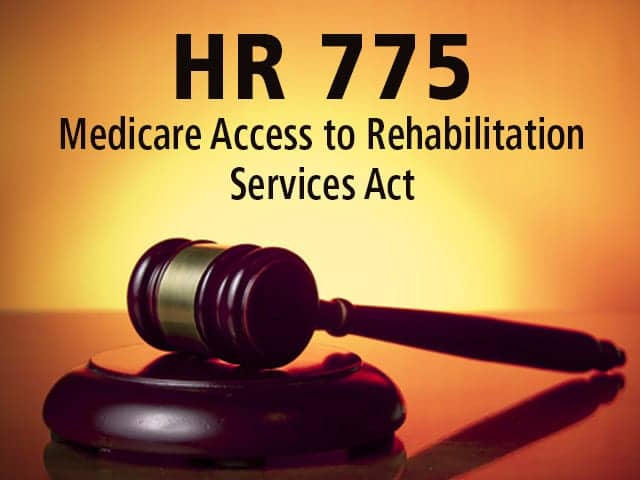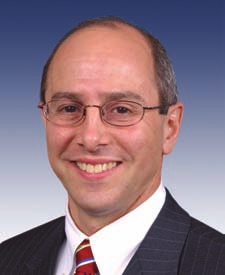What seems like an annual battle to extend therapy cap exceptions may end this year if the recently introduced Medicare Access to Rehabilitation Services Act (HR 775) is approved. The bill aims to permanently repeal Medicare’s outpatient therapy cap, and has debuted in the 114th Congress with bipartisan support in the US House of Representatives.
In a media release from the American Occupational Therapy Association (AOTA), Tim Casey, director of federal affairs for the AOTA, points out that the current therapy exceptions will expire March 31. He emphasizes that introducing the bill early is critical in demonstrating to Congress that there is support behind repealing the therapy cap, which he characterizes as a “long-flawed policy.”
“We are thankful to the champions of this bill for lending their voice to an issue that has far-reaching effects on the ability of our nation’s seniors to get the care they need and deserve,” Casey says.
The bill enjoys a mix of support from both parties, including its lead sponsor and physician, Charles W. Boustany, (R-LA). Another conservative, Marsha Blackburn (R-TN), also supports the bill, along with California Democratic Reps Lois Capps and Xavier Becerra. The AOTA reports the bill already has 50 original co-sponsors.
The AOTA reports that it strongly supports full repeal of the Medicare Part B Outpatient Therapy Caps, which limits access to medically necessary rehabilitation services for Medicare patients across all outpatient settings. According to AOTA, the arbitrary therapy cap established for 2015 is $1,940 for occupational therapy services, and $1,940 for physical therapy and speech-language-pathology services combined.
In 2009 a similar bill (S 46) was introduced that called for repeal of the therapy cap. That bill was read twice and referred to the Committed on Finance, where it died January 6. HR 775 may face an uphill battle, according to projections from govtrack.us, which give the legislation a 3% chance of getting past committee, and a 1% chance of being enacted.
—Frank Long, editorial director, Rehab Management
[Sources: AOTA, govtrack.us, boustany.house.gov]







